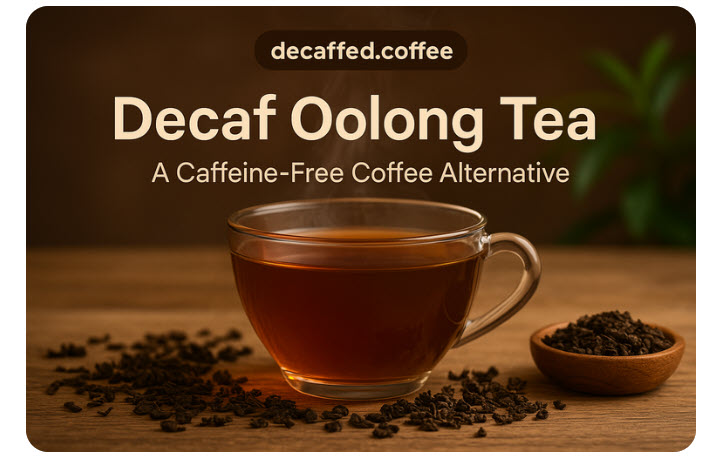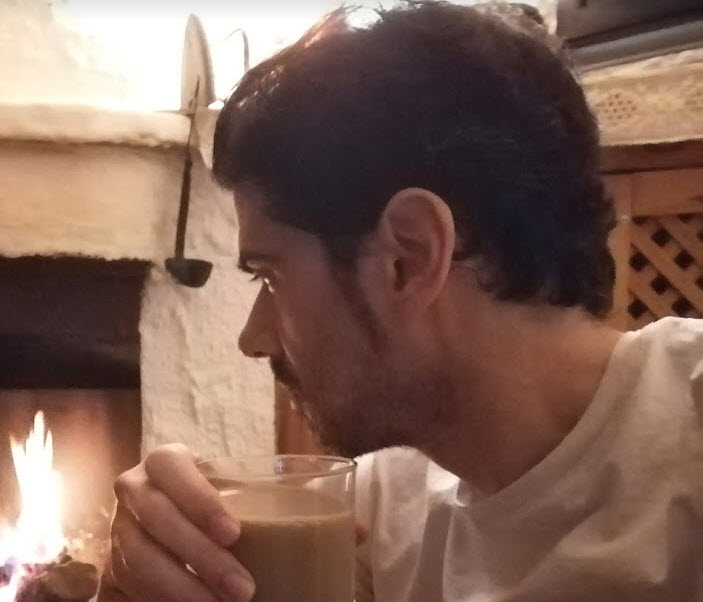- Decaf oolong tea is low-caffeine, smooth, and layered in flavor.
- It supports digestion and offers antioxidant benefits.
- Works well as a bridge between coffee, tea, and herbal infusions.
- Multiple brands now offer reliable decaf oolong options worldwide.
Definition of Decaf Oolong Tea?
A semi-oxidized tea with caffeine removed.
Oolong tea sits between green and black tea in oxidation, producing a complex flavor: floral, roasted, or fruity depending on the variety.
Decaf oolong tea uses either water processing or carbon dioxide extraction to reduce caffeine, leaving most antioxidants and flavors intact. This creates a balanced drink for those who want the ritual of tea without caffeine-related side effects.
Why Consider Decaf Oolong as a Coffee Alternative?
It provides warmth, ritual, and depth without overstimulation.
For many coffee drinkers, the hardest part of reducing caffeine is losing that sense of comfort in a warm, full-bodied beverage.
Decaf oolong fills this gap. Its roasted or nutty notes can mimic some aspects of coffee’s depth, while its lighter body feels easier on digestion. For those exploring options, it pairs well with our broader list of coffee alternatives.
Does Decaf Oolong Tea Have Health Benefits?
Yes, especially for digestion and antioxidant support.
Oolong teas (even decaffeinated versions) contain polyphenols that may help reduce oxidative stress and support heart health.
The presence of theanine can promote calm focus. According to the National Center for Complementary and Integrative Health, tea polyphenols have been linked to improved cardiovascular health and metabolic support.
How Does It Compare to Decaf Coffee?
- Flavor: decaf coffee delivers a bolder, more robust profile, while decaf oolong tea is smoother and often layered with floral or toasted notes.
- Body: coffee feels heavier; oolong tea tends to feel lighter, with a clean finish.
- Compounds: decaf coffee keeps chlorogenic acids, while decaf oolong emphasizes catechins and theanine.
For those reducing caffeine, alternating between decaf coffee and decaf oolong creates variety without missing out on comforting rituals.
Best Decaf Oolong Tea Brands
- Bird Pick Decaf Oolong: Known for smooth, lightly roasted leaves, convenient in tea bags.
- Ten Ren’s Tea Decaf Oolong: a traditional producer with wide availability in Asian supermarkets.
- Cushla Tea Decaf Oolong: marketed for its health benefits, mild floral flavor.
- Stash Tea Decaf Oolong: widely available online, balanced roasted character.
- Prince of Peace Decaf Oolong: affordable option with consistent taste.
How to Brew Decaf Oolong Tea
- Use 1 tsp loose leaf (or 1 tea bag) per 8 oz water.
- Water temperature: 190–200°F (just below boiling).
- Steep 3–5 minutes.
- Re-steep leaves once for a lighter second cup.
Tip: steep carefully to highlight its flavor.
Decaf Oolong Tea FAQs
1. Is decaf oolong tea completely caffeine-free?
No, like decaf coffee, it retains trace amounts (about 2–5 mg per cup).
2. Does decaf oolong taste like regular oolong?
Yes, though some subtle aromatic notes may be reduced in processing.
3. Can I drink decaf oolong tea before bed?
Yes, it’s low enough in caffeine that most people can enjoy it in the evening.
4. Is decaf oolong healthier than herbal tea?
Not better, just different. Oolong offers tea-specific polyphenols absent in most herbal infusions.


